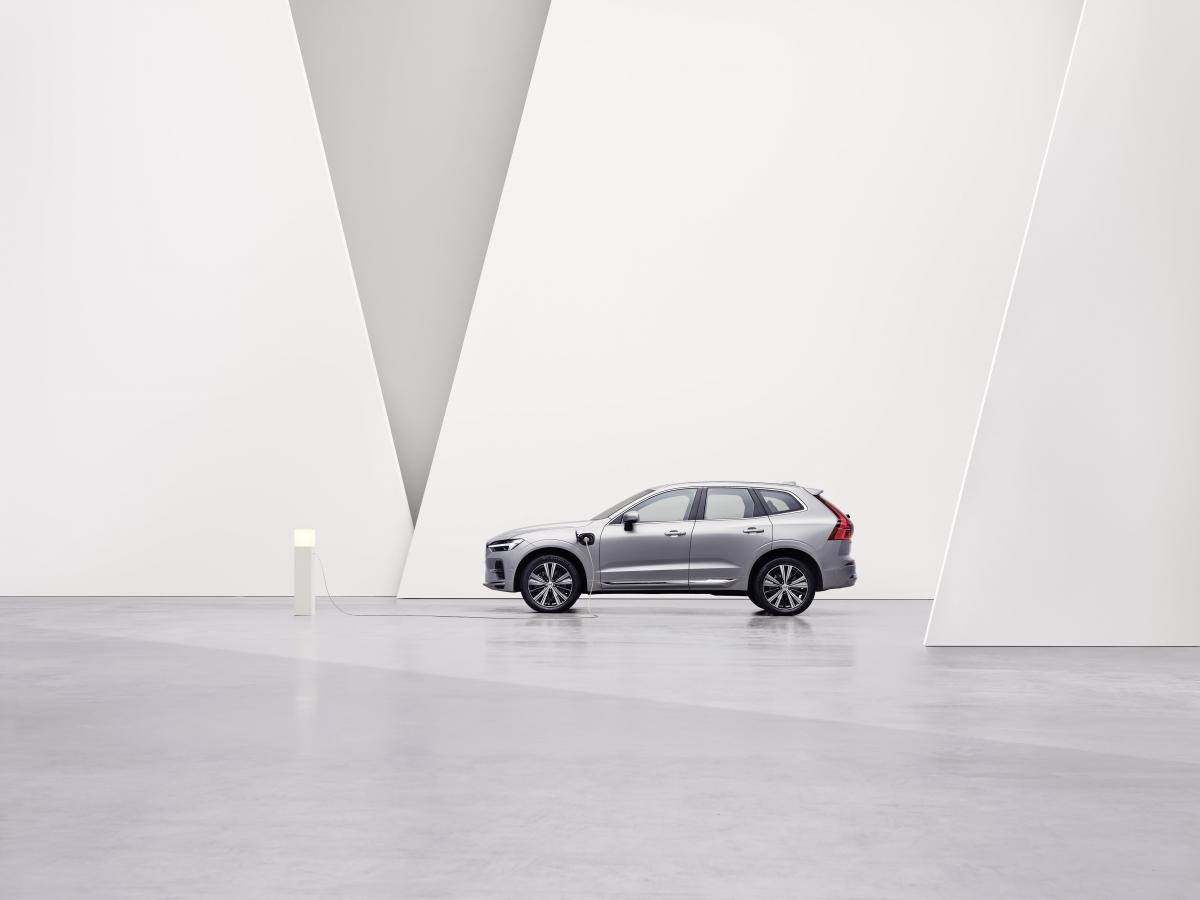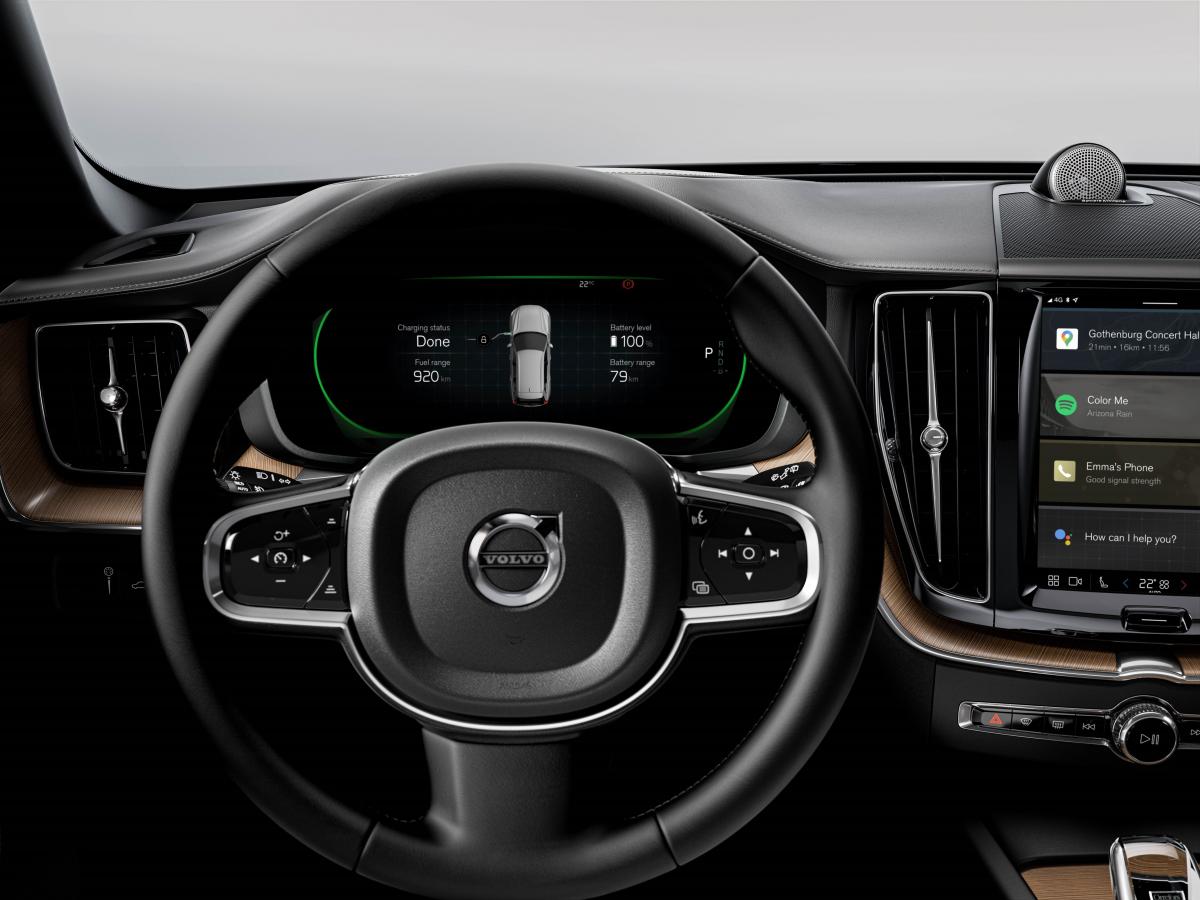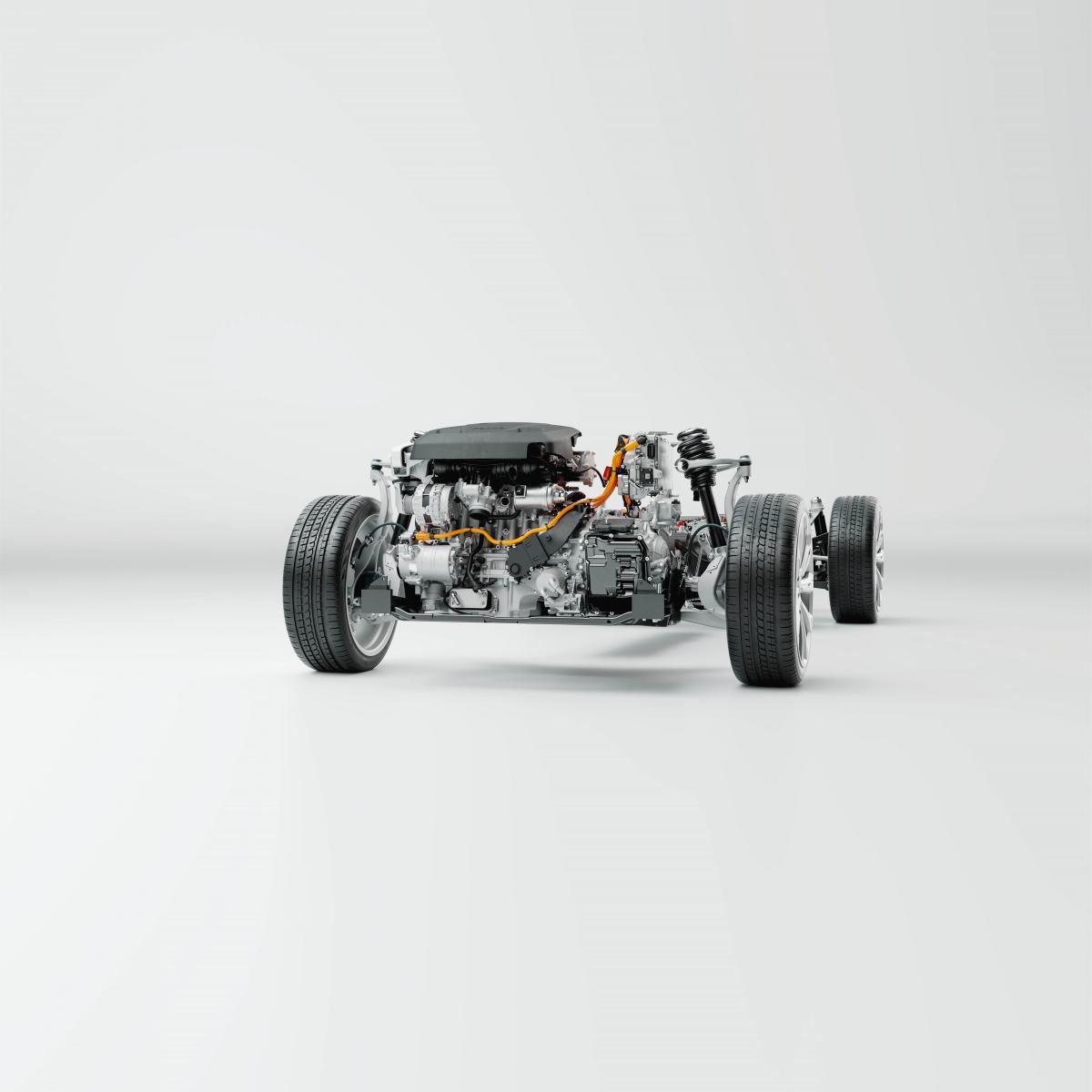Volvo
Cars’ new Recharge plug-in hybrid powertrain outperforms
average daily mileage on a single charge
Volvo Cars has introduced a new, improved Recharge
plug-in hybrid powertrain on its 90 and 60 Series models, significantly
extending electric range while lowering CO2 emissions, increasing
performance, and improving driveability.
Volvo Cars’ new and improved hybrid powertrain brings
the all-electric range up to a projected 90 kilometres* on a single charge.
With the average premium car owner travelling less than 50 kilometres each
weekday**, most Volvo drivers with home charging will be able do their daily
motoring on pure electric power in a new Volvo plug-in hybrid.
The main improvements include a new long-range
battery, featuring a third layer of cells to increase nominal energy from
11.6kWh to 18.8kWh, and a more powerful rear electric motor now delivering
145hp. The additional electric power results in a total combined output of
350hp for Recharge T6 and 455hp for Recharge T8 models, making the latter the
most powerful Volvo cars ever produced. Besides the new powertrain, new
upgrades include one-pedal drive on specific models.
The increased battery capability means that more
customers will be able to drive primarily in pure electric mode, and Volvo Cars
estimates that the new powertrain has the potential to reduce CO2
emissions by up to around 50 per cent under the WLTP drive cycle.
“It’s 2021, and people should no longer have to rely
on petrol or diesel when commuting,” said Henrik Green, chief technology officer
at Volvo Cars. “Our latest plug-in hybrids deliver all the electric driving
range needed in most people’s everyday life.”
The new and improved e-motor ups the power in the rear
wheels by 65 per cent, enhancing performance and driveability in all scenarios.
Together with the boosted battery, the upgraded e-motor also enables better
all-wheel drive capability which can prove particularly useful at low speeds,
when towing, or when driving on slippery roads that demand extra traction and
stability.
The suite of upgrades includes the addition of
one-pedal drive, which can help deliver an especially smooth and intuitive
driving experience. The function, already seen on pure electric Volvo models,
gives the driver the option of controlling both acceleration and deceleration
with only the accelerator pedal. It will be rolled out initially on the Volvo
XC60, S90 and V90 Recharge plug-in hybrids.
The extra battery capacity also comes in useful on
cold winter days, as well as in scorching heat. Even when the car is not
plugged in, drivers are able to pre-heat or pre-cool the cabin remotely via the
Volvo Cars app while still maintaining a generous amount of electric range.
Volvo Cars is committed to becoming a leader in the
fast-growing premium electric car market. By the middle of this decade, it aims
to sell 1.2 million cars globally, with at least half being fully electric
cars. By 2030, it plans to become a fully electric car company.
Customer research shows that Volvo Cars’ plug-in
hybrids are already now driven around half of the time in pure electric mode.
This powertrain upgrade will increase that percentage, further cementing their
position as ‘part-time electric cars’.
“Driving a plug-in hybrid is often a stepping-stone to
going fully electric,” said Henrik Green. “We believe that this upgrade will
show to many that driving electric is the future and take us closer to our 2030
ambition of becoming fully electric.”
The new powertrain is introduced on all Volvo Recharge
plug-in hybrid models based on the Scalable Product Architecture (SPA), which
include the Volvo S60, V60, XC60, S90, V90 and XC90 Recharge models.
Along with the powertrain improvements, the
turbocharged T8 petrol engine is upgraded for higher fuel efficiency and
performance. This means higher engine power at low revs and take-off while
ensuring a more refined electrified drive with reduced CO2 tailpipe
emissions.
In Ireland, starting prices of the new Recharge plug-in
hybrid powertrain are as follows:
- XC60 T6 Recharge PHEV Momentum AT8 RHD from
€59,950
- XC90 T8 Recharge PHEV Momentum AT8 RHD from
€79,950
- V60 T6 Recharge PHEV Momentum AT8 RHD from
€55,950
- S90 T8 Recharge PHEV Momentum AT8 RHD from
€69,950
Both the V60 T6 Recharge and XC60 T6 Recharge qualify
for the €2,500 SEAI grant.
Note to editors:
*Range figures vary per model. Range according to the
realistic WLTP driving cycle under controlled conditions for a new car.
Real-world range may vary.
**Based on research from consulting company Sigma.
Sigma’s research includes statistics on average daily driving distances in
China, the US, France, Germany, Italy, Spain, and the UK.
-------------------------------
Volvo Car Group in 2020
For the 2020 financial year, Volvo Car Group recorded
an operating profit of 8.5 BSEK (14.3 BSEK in 2019). Revenue over the period
amounted to 262.8 BSEK (274.1 BSEK). For the full year of 2020, global sales
reached 661,713 cars (705,452), a decline of 6.2 per cent compared to 2019.
About Volvo Car Group
Volvo Cars was founded in 1927. Today, it is one of
the most well-known and respected car brands in the world with sales of 661,713
cars in 2020 in about 100 countries. Volvo Cars has been under the ownership of
the Zhejiang Geely Holding since 2010.
As of December 2020, Volvo Cars employed approximately
40,000 (41,500) full-time employees. Volvo Cars' head office, product
development, marketing and administration functions are mainly located in
Gothenburg, Sweden. Volvo Cars' head office for APAC is located in Shanghai and
for Americas in Mahwah, NJ. The company’s main car production plants are
located in Gothenburg (Sweden), Ghent (Belgium), South Carolina (US), Chengdu
and Daqing (China).
Under its company purpose, Volvo Cars aims to provide
customers with the Freedom to Move in a personal, sustainable, and safe way.
This purpose is reflected into a number of business ambitions: for example, by
the middle of this decade it aims for half of its global sales to be fully
electric cars, half of its sales to be online and half of its software to be
in-house. Volvo Cars is also committed to an ongoing reduction of its carbon
footprint, with the ambition to be a climate-neutral company by 2040.


